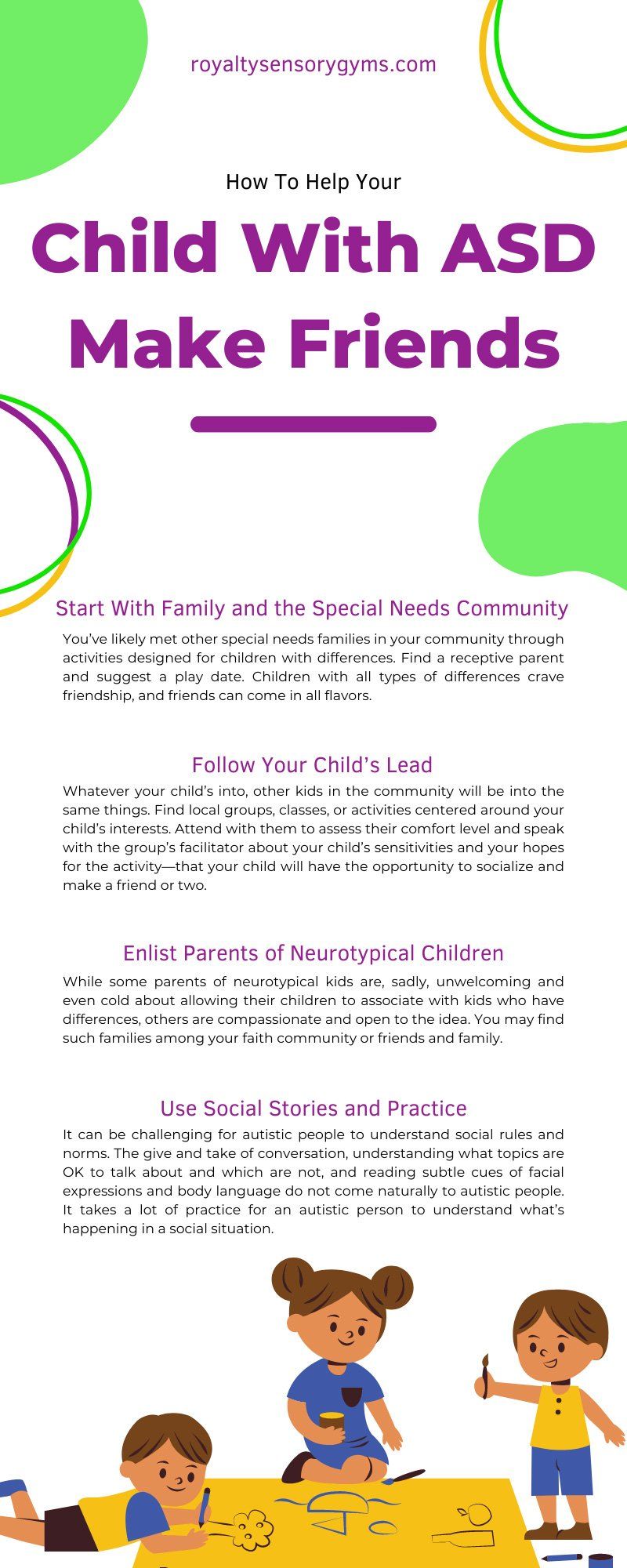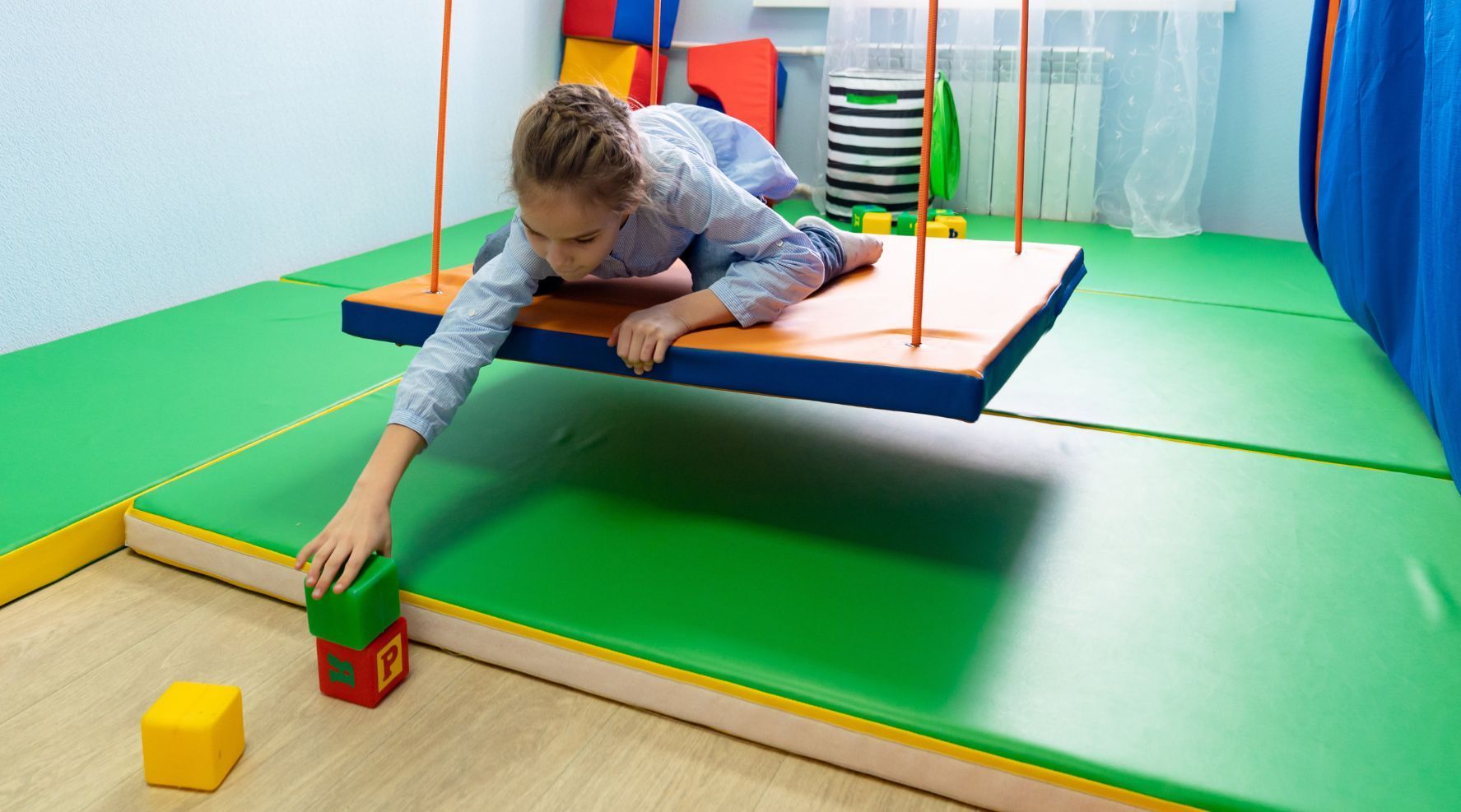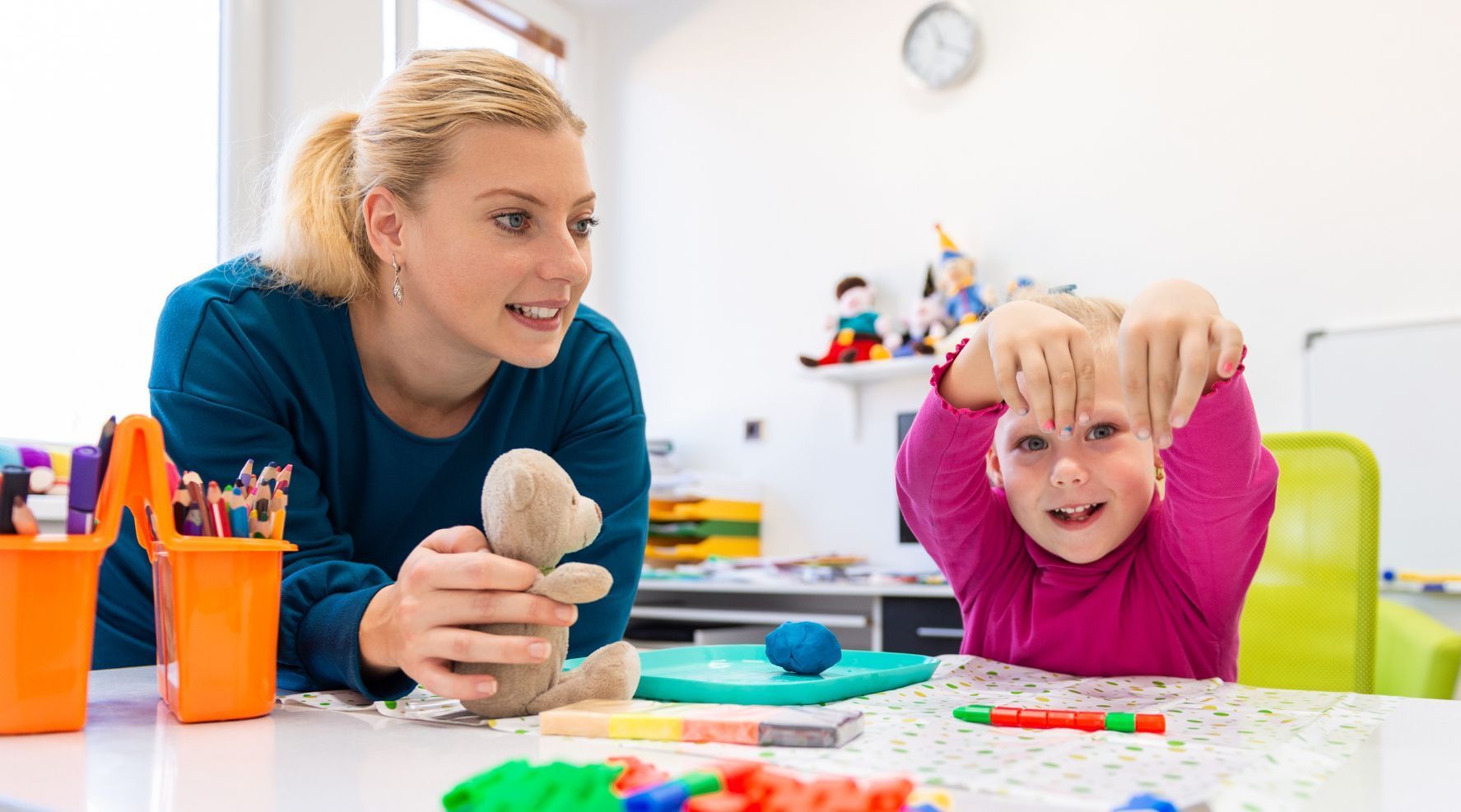How To Help Your Child With ASD Make Friends
Neurotypical people often mistake an autistic person’s avoidance of eye contact or tendency to physically distance themselves from others as deliberate aloofness. Nothing could be further from the truth. Many children with autism spectrum disorder (ASD) have strong social interests but difficulty expressing them in socially acceptable ways.
An autistic child may find social situations overwhelming due to sensory overload (too much noise, feeling too crowded, anxiety about not knowing what to do) and the inability to understand social cues, facial expressions, and tones of voice. Changes in schedules or routines, or simply new people in their environment, can make autistic people very anxious.
These changes present new challenges, and kids with ASD are aware of heightened expectations that they may be unable to meet in these situations. Autistic kids may feel they have no option but to retreat, find a quieter place, and have more space to calm themselves.
Other autistic kids may begin to display socially inappropriate “stimming” behavior like hand flapping, rocking bath and forth, jumping up and down, running away, or defensive behaviors like covering their ears. These behaviors may be soothing to an autistic child, but they are off-putting to neurotypical kids and can interfere with forming friendships.
Parents of autistic children understand how desperately their children want to make friends and may feel anguish and dismay when they don’t know what to do to teach their children how to cope with and thrive in social situations. But it is possible to learn how to help your child with ASD make friends.
What’s a Friend?
Autistic kids are vulnerable to bullying. Often, they don’t understand when other kids are making fun of them or luring them into dangerous or demeaning activities. An autistic child may think that any attention from peers is good.
This is why talking to your child about what a friend is and how a good friend behaves is essential. Keep your communication simple and concrete: “friends help you” and “friends like to do the things you like to do.” Explain that “people who hurt you are not friends.” Give examples of good friend behavior, like taking turns and sharing. Contrast these with unfriendly behavior, like stealing, saying mean things, or mocking by imitating behavior.
Start With Family and the Special Needs Community
You’ve likely met other special needs families in your community through activities designed for children with differences. Find a receptive parent and suggest a play date. Children with all types of differences crave friendship, and friends can come in all flavors.
Arrange to meet up on neutral ground. Autistic kids can be protective of their home environment, and having a friend over at their house may feel too invasive.
Parents of kids who use wheelchairs may be wary of a new environment and whether it can accommodate them. Instead of meeting at your home, see if you can meet up at an inclusive, indoor or outdoor
sensory playground where the kids can feel comfortable and the parents are confident they are safe.
Follow Your Child’s Lead
Autistic children often have an intense interest in specific things. They may develop an encyclopedic knowledge of the history and superpowers of comic book or film characters. They may enjoy drawing or coloring for hours on end. Or they may love music.
Whatever your child’s into, other kids in the community will be into the same things. Find local groups, classes, or activities centered around your child’s interests. Attend with them to assess their comfort level and speak with the group’s facilitator about your child’s sensitivities and your hopes for the activity—that your child will have the opportunity to socialize and make a friend or two.
Many municipal parks and recreation departments have agreements with special needs recreation associations to facilitate activities for participants with special needs. Be assertive in obtaining help or accommodation for your child to foster their success in activities that help them pursue their interests.
Enlist Parents of Neurotypical Children
While some parents of neurotypical kids are, sadly, unwelcoming and even cold about allowing their children to associate with kids who have differences, others are compassionate and open to the idea. You may find such families among your faith community or friends and family.
If your child attends public school, insist that they are in the “least restrictive environment.” This means they may attend classes with neurotypical students, with or without an aide. It’s possible to help your child with ASD make friends among their classmates.
Ask your child if there’s anyone at school they’d like to have as a friend. Consult with the teacher of the class the kids share—does the teacher think the other child would be responsive? Then contact the child’s parent and see if you can arrange a playdate.
Don’t get discouraged if it doesn’t work out. Just keep trying, and at some point, you’ll find a compatible child who genuinely likes your child and is happy to spend time with them.
Use Social Stories and Practice
It can be challenging for autistic people to understand social rules and norms. The give and take of conversation, understanding what topics are OK to talk about and which are not, and reading subtle cues of facial expressions and body language do not come naturally to autistic people. It takes a lot of practice for an autistic person to understand what’s happening in a social situation.
Social stories are brief vignettes, told in text, pictures, or both, to show an autistic child a social situation and what to do and not do when they find themselves in such a situation. Your child’s special education teacher or therapist can help you find sources for social stories and select some that may help your child understand how to play and talk with a friend.
Don’t Push and Don’t Compare
Your child will make it abundantly clear when something pushes them beyond their tolerance. It’s critically important for parents of kids with ASD to abandon unrealistic expectations and to avoid comparing their child’s social life to that of their peers or themselves when they were kids.
One or two good friends may be enough for a child with ASD. In the long run, helping your child make a few close, understanding, and genuine friends who are likely to stick with them through adolescence and beyond will be more valuable than having a pack of superficial friends who come and go.
Helping a child with ASD make friends takes patience, endurance, and persistence. Don’t give up just because other parents seem unresponsive. By following your child’s interests and understanding that they may be happier with one good friend than with a group of acquaintances, you both will feel more successful and less anxious about social development.






